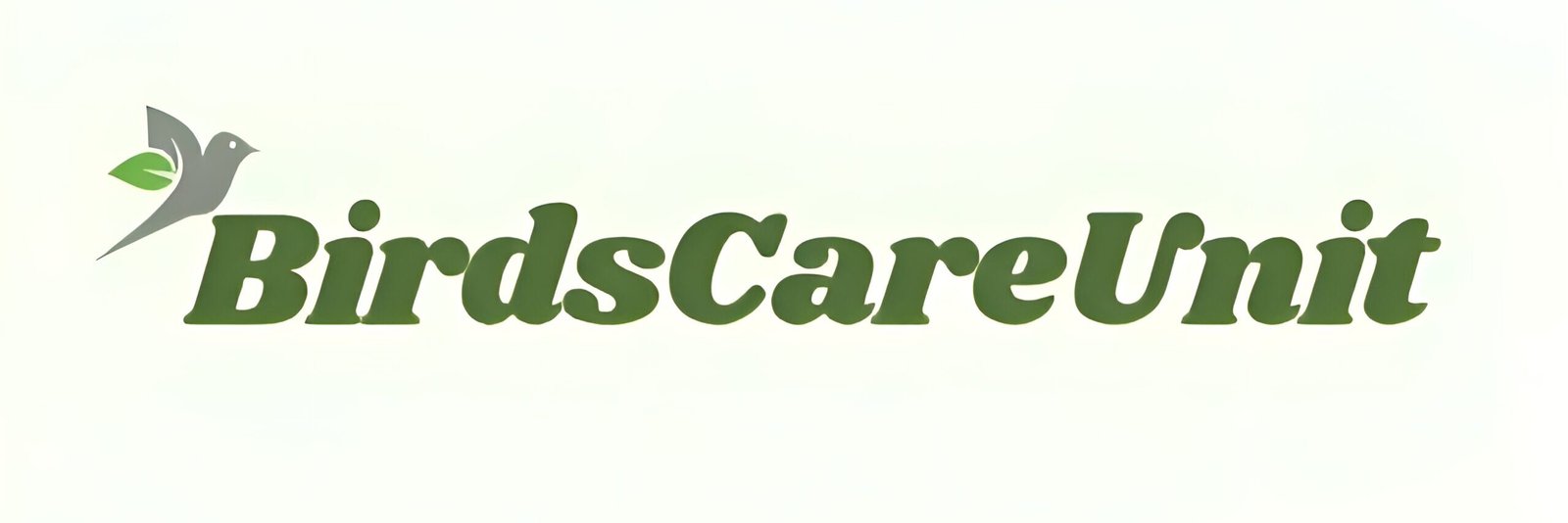How Do I Know If My Cockatiel is Healthy?

Understanding Your Bird’s Health: Signs, Symptoms, and Care
I’ve recently decided to expand my love for cockatiel breeding by becoming a larger breeder. Breeding pet birds has been a deeply rewarding experience for me. However, before fully expanding my farm, I need to ensure the health and well-being of my new cockatiels. This is crucial because ensuring that your cockatiels are healthy is the foundation of a successful breeding project; otherwise, it could result in failure and losses.
Today, I want to share my experience and insights on how I determine if my cockatiels are healthy and provide some valuable tips for other bird enthusiasts, breeders, and pet owners who want to ensure the well-being of their birds.
Signs Your Bird Is Healthy
A healthy cockatiel will exhibit specific positive physical and behavioral traits. Observing your bird regularly is key to understanding its baseline health. Here are the signs to look for:
Bright Eyes with No Discharge
A healthy cockatiel will have clear, bright eyes with no signs of discharge, swelling, or cloudiness. Dull or watery eyes may indicate illness.Clean Nares (Nostrils)
The nostrils of a healthy bird should be free from any discharge or crustiness. Any obstructions or nasal discharge could indicate respiratory issues.Smooth Feathers Without Stress Bars
Feathers should be smooth, sleek, and shiny. Stress bars (horizontal lines on feathers) are signs of poor health, stress, or malnutrition.Playful Behavior and Interaction
Healthy cockatiels are active, playful, and engaged in social interactions. If your bird shows enthusiasm when interacting with you, other birds, or its toys, this is a good sign.Clean Vent
The vent, or the area around the bird’s cloaca, should always be clean and dry. Any staining or fecal buildup could signal digestive issues.
Subtle Signs of a Sick Bird
It’s crucial to recognize when something seems “off” with your cockatiel. Early detection of illness is key to successful treatment, but many signs of sickness can be subtle.
Decreased Activity
If your bird appears sluggish or uninterested in its usual activities, such as playing, singing, or interacting, this could be a sign of illness.Prolonged Molt or Continuous Presence of Pinfeathers
Molting is a natural process, but if your bird is in molt for a prolonged period or has excessive pinfeathers, it may indicate a nutritional deficiency or stress.Excessive Flakiness of the Beak or Skin
A healthy cockatiel’s beak and skin should be smooth and well-moisturized. Excessive flaking may be due to a lack of vitamins or an underlying health problem.Chewed, Broken, or Missing Feathers
Feather abnormalities can signal health or behavioral issues, such as feather picking, which may result from boredom, stress, or underlying illness.Lameness or Changes in Stance
Difficulty perching or walking can be a sign of injury, pain, or a musculoskeletal problem that requires prompt attention.
Serious Symptoms That Require Immediate Attention
If your bird shows any of the following symptoms, immediate veterinary care is essential as these can be signs of severe illness:
Fluffed Feathers and Inability to Perch
Cockatiels puff up their feathers when they are cold, but persistent fluffing combined with lethargy or an inability to perch is often a sign of serious illness.Difficulty Breathing
Any signs of labored breathing, such as wheezing, open-mouth breathing, or tail bobbing, can indicate respiratory distress.Changes in Droppings
Monitoring your bird’s droppings is crucial. If you notice changes in the color, consistency, or quantity of droppings, this can be a sign of gastrointestinal problems or other internal issues.Decreased Appetite or Drinking
A sudden drop in your bird’s food and water intake is a strong indicator that something is wrong.Vomiting or Regurgitation
Occasional regurgitation can be part of courtship behavior, but frequent vomiting or regurgitation is a symptom of a digestive issue or infection.
The Importance of Monitoring Your Bird’s Droppings
Bird droppings provide valuable insights into their health. Cockatiel droppings consist of three components: urine (the liquid part), urates (the white or cream-colored portion), and feces (solid waste).
Normal Droppings
- Urine: Clear and watery.
- Urates: Creamy white or slightly yellow.
- Feces: Dark green to brown depending on the bird’s diet.
Abnormal Droppings
- Blood in the droppings can indicate a serious internal injury or disease.
- Black or tar-like feces can indicate internal bleeding.
- Watery or excessively liquid droppings can signal dehydration or digestive issues.
- Yellow or greenish urine may indicate liver disease.
What to Do If You Notice Changes in Droppings
If you notice any unusual changes in your bird’s droppings:
- Keep a close eye on the bird’s behavior.
- Use newspaper or plain paper in the cage to better observe the droppings.
- Contact an avian vet if changes persist for more than 24 hours or are accompanied by other symptoms.
Weighing Your Bird Weekly
One of the easiest ways to monitor your bird’s health is by regularly checking its weight. Weight loss is often one of the first signs of illness.
How to Weigh Your Bird
- Use a Precision Scale: A digital gram scale is ideal for birds.
- Weigh at the Same Time Each Week: Preferably in the morning before feeding.
- Record the Weight: Keep a log of your bird’s weight. Even small fluctuations can be significant.
A cockatiel should maintain a stable weight. Any significant or sudden weight loss of 10% or more could be a sign of illness and should prompt a visit to the vet.
Annual Veterinary Examinations for Birds
Annual check-ups with an avian veterinarian are a critical part of preventive care for your cockatiel. These exams can catch health issues early, often before they become more serious.
Why Annual Exams Are Important
- Baseline Health Values: An avian vet will establish baseline parameters such as weight, heart rate, and respiratory rate for your bird.
- Early Detection: Subtle signs of illness that owners might miss can be identified by an experienced veterinarian.
- Preventive Care: Veterinarians can provide parasite treatments, vaccinations, and nutritional advice during routine check-ups.
Annual Bloodwork for Birds
Blood tests are an invaluable tool for assessing your cockatiel’s internal health. They help in detecting underlying diseases that might not show outward symptoms.
Benefits of Annual Bloodwork
- Detect Infections: A complete blood count (CBC) can reveal infections or inflammation.
- Monitor Organ Function: Blood chemistry panels evaluate the health of vital organs like the liver and kidneys.
- Establish Baselines: Regular blood tests help establish normal values for your bird, making it easier to detect any abnormalities.
Fecal Examinations
Fecal tests are another crucial aspect of maintaining your bird’s health, particularly for detecting parasitic infections or gastrointestinal issues.
What Fecal Exams Can Reveal
- Parasites: Common parasites in birds include worms, protozoa, and coccidia.
- Gastrointestinal Health: Abnormalities in fecal matter may indicate digestive problems or infections.
- Monitoring Treatment Efficacy: Fecal exams help veterinarians assess whether treatments for parasitic infections have been effective.
More Extensive Diagnostics
In some cases, more extensive diagnostic tests may be necessary to uncover complex health issues in your cockatiel.
Radiographs (X-rays)
X-rays allow veterinarians to visualize bones, organs, and tissues, which can help diagnose fractures, tumors, or respiratory issues.Endoscopy
Endoscopy involves using a small camera to examine the bird’s internal organs. This procedure is especially useful for diagnosing gastrointestinal or reproductive issues.Heavy Metal Testing
Cockatiels are highly susceptible to heavy metal poisoning (from lead or zinc). Blood tests can detect toxic levels of heavy metals.
Role of Nutrition in Bird Health
Proper nutrition is critical for maintaining the health of your cockatiel, especially if you plan to breed birds.
High-Quality Pellets
Feed your cockatiel a high-quality, nutritionally complete pelleted diet designed specifically for their species.Fresh Fruits and Vegetables
Supplement their diet with fresh produce, but avoid toxic foods such as avocado, chocolate, and high-fat or salty snacks.Avoiding Obesity
Overfeeding treats or seeds can lead to obesity, which can have a negative impact on a cockatiel’s health and longevity.Fresh, Clean Water
Always provide your birds with fresh, clean water. Cockatiels are prone to dehydration, especially during travel or in warmer environments.
Conclusion
Ensuring that your cockatiel is healthy is the most important aspect of being a successful bird breeder. By regularly observing your bird for signs of good health, recognizing early signs of illness, monitoring droppings, keeping track of your bird’s weight, and providing a balanced, nutrient-rich diet, you can prevent many common health issues and promote long, happy lives for your cockatiels. Regular veterinary check-ups, coupled with vigilant care at home, will allow you to detect any problems early, ensuring prompt treatment.
As a breeder, maintaining the health of your birds is not only vital for the well-being of each cockatiel but also essential for the success of your breeding operation. A healthy bird is more likely to breed successfully, raise healthy chicks, and live a full and active life. Prioritizing their health helps create a thriving environment, fostering happy and active cockatiels that will continue to bring joy to you and your clients.
Ultimately, the key to success in cockatiel breeding is vigilance, dedication, and a deep understanding of their needs. By applying these principles, you can create a flourishing breeding farm and ensure that your birds thrive, giving you peace of mind and a successful breeding journey.


